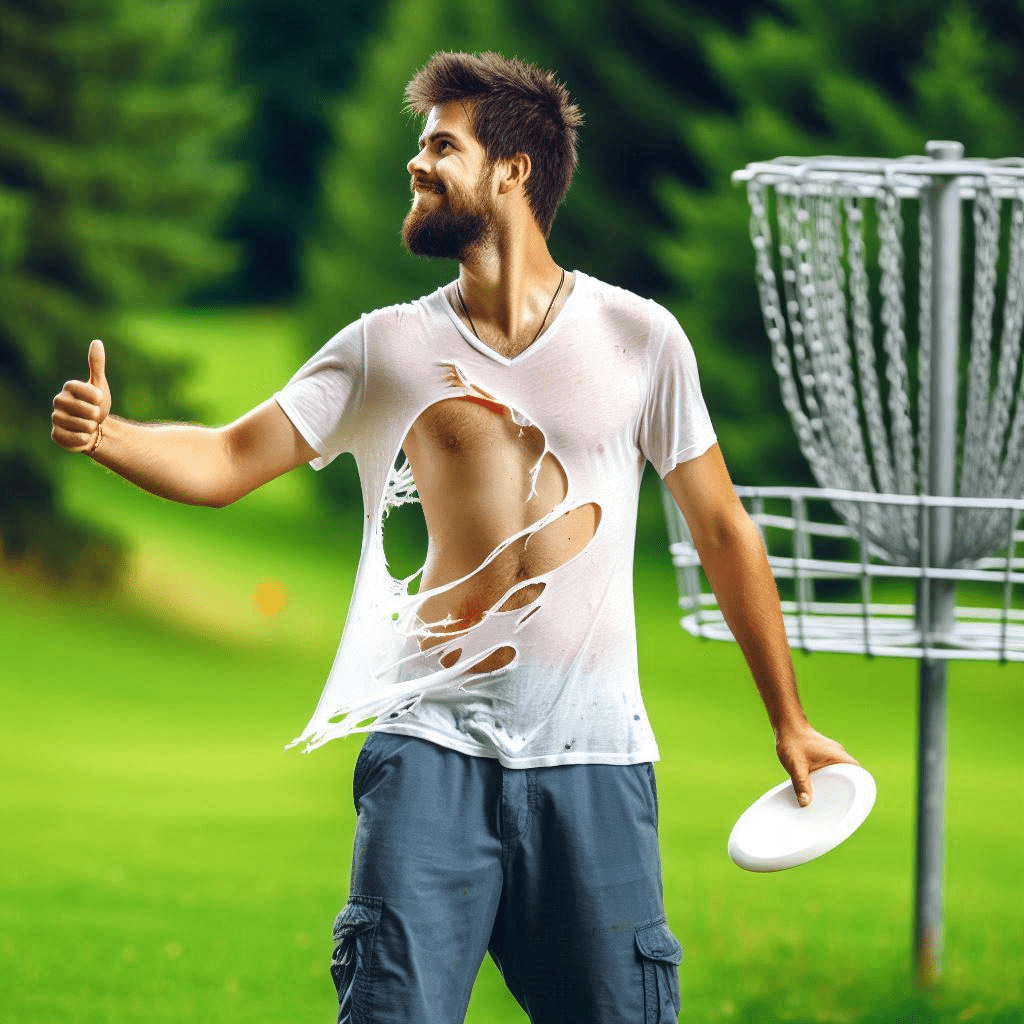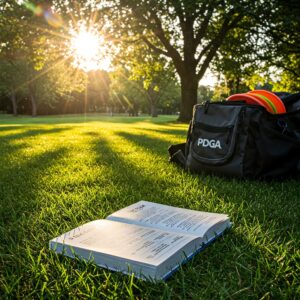The excitement of sinking a putt the navigation through wooded fairways – disc golf is a sport that demands concentration, skill and a touch of competitiveness. Like all sports it’s important for the rules to progress to ensure fairness and keep the game engaging for everyone involved. Here’s a glimpse into the PDGA disc golf rule adjustments proposed for 2025 introducing changes that promise to impact aspects such as timeouts and addressing sandbagging practices ultimately leading to a smoother and more pleasurable experience on the course.
Let’s be real here disc golf goes beyond throwing discs and chasing birdies (though those aspects are undeniably enjoyable!). It’s a game that necessitates concentration, tactics and a healthy dose of drive. As with any sport rule modifications are essential to maintain fairness, enjoyment and inclusivity.
This year the PDGA (Professional Disc Golf Association) unveiled an array of suggested disc golf rule updates for 2025 that are set to shake things up in a manner. Covering elements like timeouts and combating tactics these revisions aim to elevate the overall disc golf experience for players, across different proficiency levels.
This article has been updated to reflect the finalised PDGA rule changes for 2025. Here’s an overview of the official adjustments that aim to enhance fairness and enjoyment for players. These confirmed changes impact key areas, including anti-sandbagging measures and player comfort provisions like restroom requirements, which are now mandatory at certain event levels. For the official announcement and detailed information, visit the PDGA’s official update
Alright make sure you have your favorite disc ready (and perhaps a cup of coffee, for some reading!) as we delve into the details of these alterations.

Level Up Your Game: A Breakdown of the 2025 PDGA Disc Golf Rule Changes
Timeouts: Taking a Strategic Breather
❌ This section was not included in the final 2025 rules
Imagine this: you’re lining up for a crucial putt on a windy hole. Pressure’s on, heart’s racing, and your inner voice starts doing the “grip-lock” dance. Well, fear not, fellow disc golfers, because 2025 might just be the year of the strategic pause!
The proposed rule allows players to call up to two 60-second timeouts per round. This gives you that much-needed moment to compose yourself, analyze the wind, or simply strategize your approach. Remember, a clear head can make all the difference between a birdie and a frustrating bogey.
Pros:
- Reduces pressure and allows for clearer decision-making.
- Promotes focus and helps players execute shots with greater precision.
- Levels the playing field by giving everyone an opportunity to regroup.
Cons:
- Speed of play, perhaps
Targeting Sandbaggers: Fair Play for All
✅ This anti-sandbagging measure was confirmed in the 2025 PDGA rules update
We’ve all heard the horror stories – the seasoned player who casually joins a lower division and dominates the competition. It’s not exactly the recipe for a fun and fair game. Thankfully, the PDGA is addressing this concern by giving Tournament Directors (TDs) more power.
Under the proposed rule, TDs can now assign players without PDGA numbers to divisions based on their knowledge of the player’s skill level. This effectively tackles the issue of “sandbagging” and ensures a more balanced playing field for everyone.
Pros:
- Promotes fair competition by placing players in divisions that match their skill level.
- Creates a more welcoming environment for newer players who wouldn’t want to compete against seasoned disc golfers.
- Encourages participation in the sport by ensuring a level playing field.
Cons:
- TDs might struggle to accurately assess the skill level of players they don’t know well.
- There’s a potential for some subjectivity in player placement.
Gotta Go? No Problem! PDGA Prioritizes Player Comfort with Restroom Rule
Let’s be honest, battling the elements on the course for hours can work up quite a thirst (and other… bodily urges). The good news? The PDGA is prioritizing player comfort by mandating restrooms at C-Tier level events and above. This may seem like a minor detail, but for long tournaments, having access to proper facilities can be a game-changer.
✅ This restroom access rule was confirmed in the 2025 PDGA rules update
Beyond the Basics: Additional Rule Tweaks for a Smoother Game
The proposed changes go beyond the big three. Here are some additional tweaks aimed at streamlining gameplay and fostering a more positive disc golf experience:
Video Evidence: Seeing is Believing (with Defined Uses)
❌ The proposal for video evidence didn’t make it to the finalized PDGA rules for 2025
Disputes happen. Did that disc land in bounds or OB? Was that a clear line of sight violation? In 2025, officials might have a new tool in their arsenal: video evidence, but with limitations. The proposed rule allows Tournament Directors or Tournament Officials to use photo or video evidence only for two specific purposes:
- Clarifying Course Markings: This includes clarifying the meaning of markings related to teeing areas, restricted routes, regulated areas, or drop zones. They can also use it to confirm that a marking isn’t relevant to the competition.
- Rulings on Player Misconduct: Video evidence, along with information from witnesses, can be used by officials to make rulings on player misconduct as defined in the PDGA rulebook.
Pros:
- Provides additional information for fairer rulings in specific situations.
- Increases accountability and discourages intentional rule-breaking related to misconduct.
Cons:
- Video evidence may not always be conclusive, especially in low-resolution footage or situations not covered by the allowed uses (like determining disc location).
- Disputes over the validity or applicability of the video evidence could potentially slow down the pace of play.
What this means for you:
While the use of video evidence is a significant addition, it’s important to understand its limitations. For now, it focuses on clarifying course markings and resolving player misconduct. The PDGA may expand its use in the future, so stay tuned for updates.
Self-Reporting Fouls: Taking Ownership on the Course
❌ This proposed self-reporting rule was not adopted in the final rules
We all make mistakes on the course. Sometimes, a disc travels farther than intended, or a foot slips over the lie line. The proposed rule on self-reporting fouls empowers players to take responsibility for their own infractions. This means you can call your own fouls without needing confirmation from another player or an official.
Pros:
- Promotes sportsmanship by placing the onus of calling fouls on the player who committed them.
- Potentially speeds up the game by eliminating the need for another player’s confirmation.
- Encourages a culture of honesty and integrity on the course.
Cons:
- There’s a risk that some players might not call all fouls on themselves, gaining an unfair advantage.
- This system relies on players’ honesty and self-awareness.
Transparency in Payouts: Knowing Where Your Winnings Go (Understanding True Amateur, Player Packs, and Trophies)
❌ The transparency around payout structures proposal was not finalized
Amateur tournaments are a fantastic way to test your skills and compete against fellow disc golfers. But have you ever wondered how the prize money gets distributed? The proposed rule tackles this by requiring Tournament Directors (TDs) to specify the payout structure for amateur events before registration opens. Here’s a breakdown of the different payout types you might encounter:
- True Amateur (Trophy Only): This applies to A-Tier and below amateur events, where the focus is on sportsmanship and participation. Winners receive trophies instead of cash or merchandise payouts.
- Player Packs: Many amateur events offer player packs to all participants. These packs contain a variety of items, such as discs, towels, shirts, or even food vouchers. The combined value of the player pack for a division must be at least equal to the minimum payout amount required for that Tier level by the PDGA.
- Trophies: The proposed rule also outlines a minimum number of trophies awarded per division, based on the number of players:
- 1 Player: No trophy required
- 2-4 Players: 1st Place only
- 5-12 Players: 1st & 2nd Place
- 13+ Players: 1st, 2nd & 3rd Place
What this means for you:
By clearly outlining the payout structure upfront, players can make informed decisions when registering for amateur tournaments. Whether you’re looking for a competitive atmosphere with trophies or a more casual experience with a player pack, you’ll know exactly what to expect.
Caddying Cadence: Keeping it Fair for One and All
❌ This rule limiting players to one caddy wasn’t adopted,
Caddying can be a valuable asset on the course, offering support, spotting discs, and keeping you focused. However, the proposed rule ensures a level playing field by limiting players to having only one caddy at a time.
Pros:
- Prevents any one player from having an unfair advantage by having multiple caddies assisting them.
- Ensures that everyone has access to similar support on the course.
- Maintains a sense of fairness and equal opportunity for all players.
Cons:
- This could be inconvenient for players who rely on caddies for specific support, like those with disabilities.
Ripped but Ready: Damaged Clothing Gets a Pass
✅ This rule was adopted
Accidents happen! Tripping on a tree root, taking a tumble, or simply catching a branch can leave your clothing a little worse for wear. Thankfully, the proposed rule on damaged clothing acknowledges the realities of the course. Clothing that gets damaged during the round is perfectly acceptable to wear for the remainder of the game.
Pros:
- Prevents players from being penalized for minor wardrobe malfunctions.
- Focuses on the spirit of the game rather than minor cosmetic damage.
- Reduces unnecessary frustration and allows players to continue competing.
Cons:
- There’s a slight possibility that some players might exploit this rule by intentionally damaging their clothing for some perceived advantage (like increased airflow). However, this seems unlikely.

Looking Ahead: A Brighter Future for Disc Golf
The PDGA’s proposed 2025 rule changes aim to create a fairer, smoother, and more enjoyable disc golf experience for everyone. Stay informed, get involved, and get ready to tee off on a brighter disc golf future!
Whether you’re a seasoned competitor or a weekend warrior, staying informed about these changes will ensure you’re ready to tee off on the right foot (without accidentally kicking in a marker). So grab your discs, keep an eye out for further updates from the PDGA, and get ready to experience the exciting future of disc golf!





